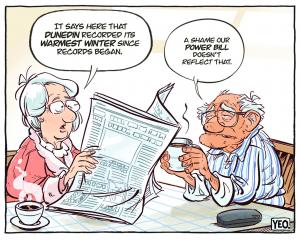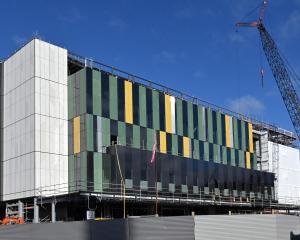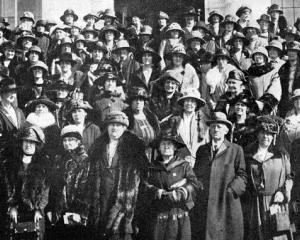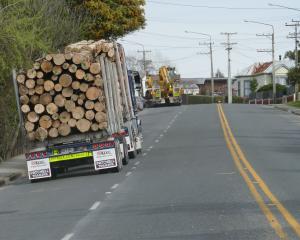

Hazards of motor traffic
Particularly distressing evidence has been afforded of late that the streets of Dunedin are not as safe for their users as they should be. The advantages of the motor era are dearly bought if they must be paid for in a serious loss of individual security. It is becoming more and more clear, therefore, that the possession which the motor vehicle has to-day of our streets and roads must be surrounded with safeguards that shall be comprehensively effective. Only by the exercise of all possible precaution and vigilance can there be a reduction to a minimum of a waste of life and limb that is discreditable to an organised and civilised community. Although the motorist may not be at all to blame for the fact that a pedestrian is struck, with fatal results, the unalterable fact remains that the motor vehicle was the instrument of death; and what between cases in which the driver was not blameable and those in which he was blameworthy the sum total of evidence respecting the dangers of motor traffic is formidable. It cannot be gainsaid that there has been abundant justification for the inclusion in the Motor Vehicles Bill now before Parliament of provisions that are designed to limit the opportunity of the negligent, reckless, or irresponsible driver of being a menace to the public safety. — editorial
DCC seals deal
The tender submitted to the City Council by the Neuchatel Asphalte Co for the supply and delivery of 350 tons of Trinidad Natural Lake Asphalt at the price of £11 per ton gross weight for the asphalt, and £1s 9s 6d net weight for the flux delivered, all charges paid at the corporation yard, has been accepted.
Housing difficulties
When some serious effort is made to alleviate the acute shortage of houses that exists at present no one will be more pleased than the social workers in the city, who are frequently put to considerable trouble in their efforts to find places of abode for homeless persons. In the course of a conversation with a reporter yesterday Ensign Coombs, of the Salvation Army, referred to the unfortunate experience which a family met with recently. A man who had been living in the country secured work in town, and when, after considerable searching, he secured the tenancy of a cottage, he sent for his wife and children. The family were astounded to find, however, that the cottage was already occupied when they reached it, and that their furniture was piled up in the street. Evidently through some misunderstanding the house had been let to two people. The woman and her children then proceeded to the south end of the town in the hope of securing two rooms, but the presence of the juveniles led to a prompt refusal by the owner to let the rooms. The unfortunate people then went into lodgings, but as their financial resources were slender they were soon in difficulties, and an appeal was made to the police, who referred the matter to the Salvation Army. Fortunately at that time a person who had two spare rooms called on Ensign Coombs, who was thus able to relieve the anxiety of the homeless people. Ensign Coombs also mentioned that she was then on her way to call on a woman who had received notice to vacate the house in which she was living. — ODT, 15.8.1924
Compiled by Peter Dowden











